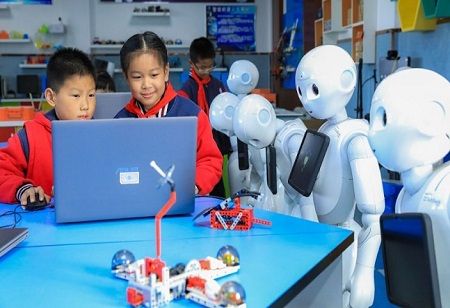In a groundbreaking move that reflects its desire to be the world leader in artificial intelligence, China has said that AI education will be made mandatory for all primary and secondary school students from September 1, 2025. This will be a major step that will make China a world leader in including AI learning in its national curriculum from the earliest levels of education.
The new policy requires at least eight hours of AI education every year for students at all levels, including kids as young as six. The syllabus will be designed to meet various age groups exposing younger children to fundamental concepts in AI through engaging and practical sessions, whereas the older children will study sophisticated topics such as machine learning, robotics, and AI applications in the real world.
AI classes could be integrated into existing subjects like science, technology, engineering, and mathematics (STEM) or offered as separate modules, depending on the school. The move is being viewed by education experts as a strategic one, placing AI literacy alongside reading, writing, and mathematics in China's education system.
The program is part of China's overall national plan to develop a tech-literate generation that can lead innovation in the future. Officials think introducing AI at an early age will reduce the learning curve, make students interested in STEM fields, and contribute to the development of a pipeline of AI researchers, engineers, and innovators.
This aggressive move also sends a strong signal to the rest of the world. While other countries are still debating how to integrate AI into education, China is aggressively integrating it into foundational learning, seeking to mold not only AI users, but leaders in the discipline.
While the world looks on, China's trailblazing action may rewrite the way countries address AI education in the decades ahead.

